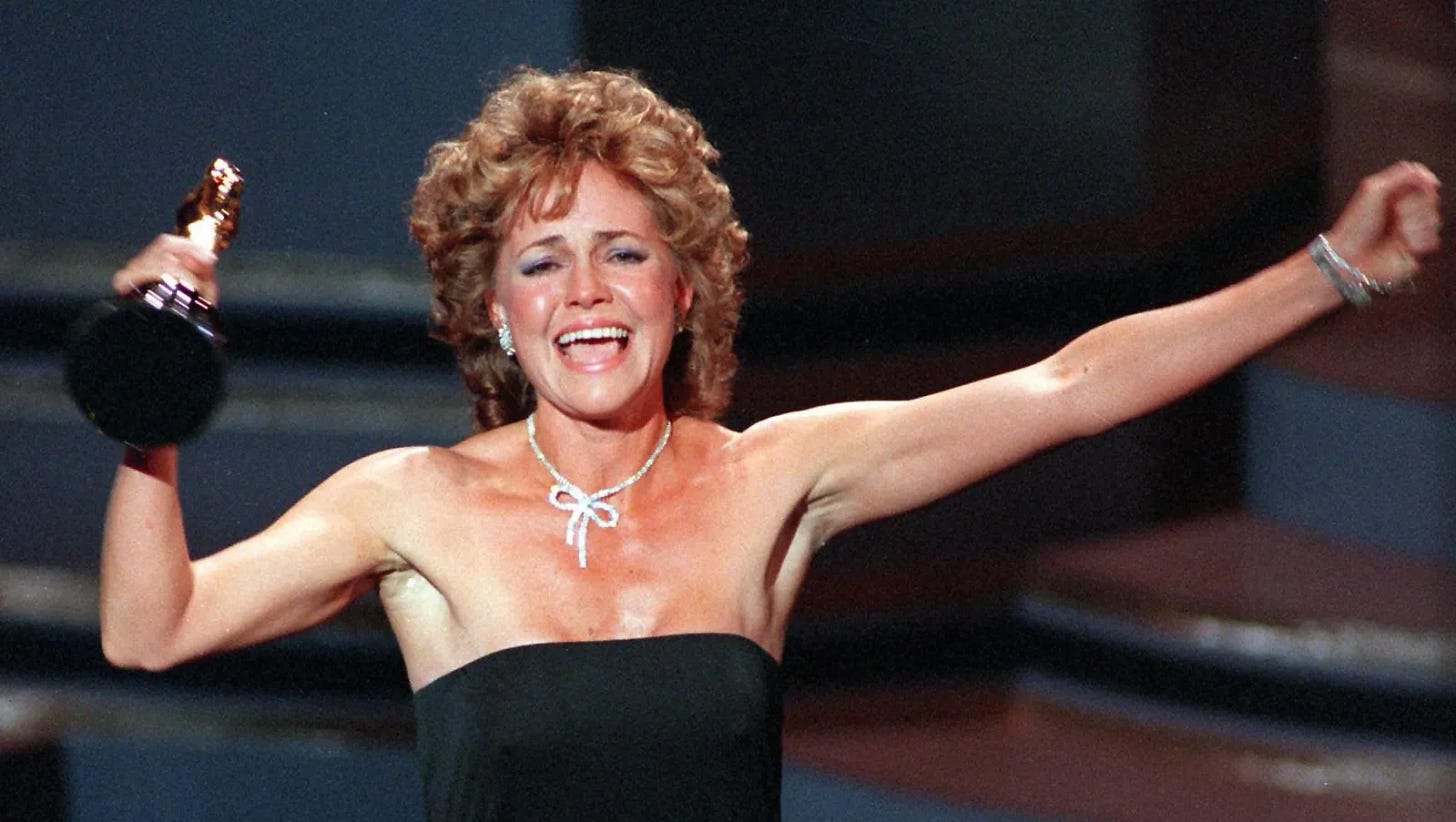I'd Like to Thank The Academy, My Hairdresser, My Dog's Hairdresser...
Thanking Those Who Helped You Will Improve Your Own Creativity
If you saw the recent Oscars ceremony then you probably saw the winners accept their awards before making speeches that thanked their colleagues, their family, the Director, the Academy, their hairdresser, their dog’s hairdresser …etc
We might laugh at how many people are being thanked and sometimes we might even think that these endless Award Show thank you lists are a bit over done. And if all the major awards shows have put in time limits for acceptance speeches then this must surely be a problem - Right?
Well not exactly. The fact is that sharing creative credit is important for all of us in the creative industries and can help us develop into more confident creatives.
Let’s be honest. Sometimes it can be difficult to share creative credit - especially when we are working as part of a team or with a creative partner who is just a pain in the ass. But it can also be a huge and debilitating source of frustration, when others don’t share the credit with us by not recognising our contribution to creative projects.
All creatives have been there. We spend hours, days, weeks on the project, we wake up at 4am because the concept came to us, or we collaborate in good faith with someone only to find our contribution goes unrecognised or unmentioned.
I have sat in meetings and seen somebody present a truly great idea and then realised that it was my idea and this person is actually taking the credit for work that I did.
I have had bosses claim my ideas as their own, creative partners refuse to credit me on projects and even a client who asked me not to claim any credit for a huge project I had created for them. When this has happened to me I have felt anger, incredulity, and a terrible sense of loss. It is like something precious has been taken away from me and will not be nurtured, tended and developed in the way I intended.
Some of this is just part of life. As creative freelancers we get used to not being credited but that doesn’t make it right and I have always wanted to understand why it happens, how we can learn to deal with it better and how we can learn to share creative credit ourselves.
Last year I put together a creative pitch for a client that won him a multi-year seven figure contract. First he tried to stiff me on the success fee and then he never publicly thanked me for my work. He posted and boasted that he had successfully pitched for this contract and was looking forward to taking his company to the next level etc. No ‘thanks for the support’ for anyone.
I felt frustrated, but thought ‘Am I being precious about this? Should I just accept that lack of gratitude as ‘part of the deal’?’ I mean I got all the money I was owed so all’s well that ends well - right? However, I let it stew a bit! I started thinking about how a public show of gratitude could have helped my business gain new clients. The more I thought about it the more I wanted to call this guy out publicly and privately. But I stopped and headed to Google for advice. Surely other creatives must have gone through this too.
During my search I found an article called ‘How To Respond When Someone Takes Credit for Your Work’. This snappily titled piece is by Amy Gallo who is an associate editor at The Harvard Business Review. Ms Gallo is also the author of the book How To Get Along With Anyone (Even Difficult People) which is probably the greatest title ever for a business book - anyone who works in a company with more than four employees is probably wishing they had this book!
In the article Amy Gallo walks us through the emotional and practical steps of dealing with having your credit stolen and offers some coping mechanisms including these:
When you discover that someone might not be sharing credit with you Take a breath, give yourself time to calm down and assess the situation - this could be a couple of hours or a couple of days - but don’t take too long so that you stew!
Once you feel a bit more in control you can ask the person why they did what they did. This can be a little passive aggressive which is not comfortable for everyone but you can try asking something like “I notice when you talk about the project you said ‘I’ instead of ‘we’ - what was the reason for that?” - you’re not being confrontational but letting them know you know!
There are a couple of others that I would suggest:
Try not to Presume that the person had malicious intentions — stealing creative credit is often an accident and sometimes the person stealing or claiming the credit is unaware of how much of your idea they took -especially if you are working in a team situation
Remember that inspiration can arrive in many forms so someone who appears to be stealing an idea might just have been inspired by you - And I know I am being VERY generous!
Dealing effectively with someone who steals our ideas can be tough, but there are also good reasons not to become ‘that person’, and some very positive upsides to learning how to share creative credit.
As a creative I love to have people to work with. I find it stimulating and productive to bounce ideas around with others, to learn from then and, let’s be honest it can be so reassuring to have someone to help shoulder the creative burden. But if we are going to creatively collaborate we also need to understand why sharing creative credit is so positive for us.
These are my FIVE positive reasons for sharing creative credit:
Number One - It is the right thing to do morally, personally, and humanly. We humans are social creatures and often when we work creatively with others what we produce is much more than the sum of its parts.
Number Two - Sharing creative credit helps us to build and demonstrate creative confidence. This is because when we share the credit the world sees us as more confident and we actually become more confident in a classic virtuous circle.
Number Three - As Amy Gallo says if we are generous and intentional about sharing credit others are likely to follow suit. If you have a presentation to give then why not include a slide that recognises the contribution of others who have truly helped you. This is a useful exercise (again) in helping us understand and gain clarity about how our own creative process works because it encourages us to question what we did, how we were helped and what we needed help with.
Number Four - Sharing Credit encourages others to want to creatively collaborate with us. I am a firm believer in spreading good vibes which is why I only work with creatives who I like and respect AND I take whatever opportunity I can to publicly recognise their work. We are all attracted to people who respect us so if we gain a reputation for respect then more people will want to work with us.
Number Five - This is really important if you lead or are part of a creative team. By sharing creative credit within the team you are establishing a culture of transparency and also creative safety. What I mean is that if you lead from a perspective of transparency and creative safety I will feel safe in your creative team sharing my creative ideas because I know I will be recognised for them and this recognition also means that my creative ideas will be well looked after and nurtured!
We all need to accept that there are times when we are not aware of what inspires us but, we are always thankful that it has! When we are open to sharing creative credit we become clearer about what has helped us to create and more able to acknowledge the inspiration.
Publicly sharing creative credit is really important and it can range from giving our collaborators a simple shout out on social media, to sharing a fee or thanking them at the Oscars!
It will help you find good collaborators, enhance your creative work and give you a better understanding of who you are as a creative. What’s not to like?
I want to finish with a personal experience which taught me so much about how important it is to share credit. A few years ago I went to a cabaret club in London called Zedel to see After You which is a one act musical.
At the time I was working for the Carnival Corporation developing new entertainment experiences across two cruise brand: Cunard Line and P&O Cruises.
I really liked After You and spoke with the writers - Katie Lam and Alex Parker - and asked them if they would like to workshop the show onboard the Cunard ocean liner Queen Mary 2 during a Transatlantic Crossing from Southampton to New York - they agreed!
In between working out logistics and casting we also discussed some creative aspects of the show including how it might work if it were actually set onboard a ship.
Alex and Katie brought the show onboard for two weeks of workshopping with a live audience and an incredible team of cast and creatives including Director Jordan Murphy, Musical Director Isaac McCullough, West End leading man Mike Colbourne and Olivier nominee Laura Pitt Pulford.
After this time the writers went away and did some more work on the show
Fast forward two years and After You was presented at the London Coliseum and a soundtrack album was released. I bought my copy and what did I find in the writer’s sleeve notes - a line thanking me for my creative contribution. I cannot tell you how happy, how grateful and how respected that made me feel BUT also what a boost it gave to my creative confidence
I had not written the show, I had not contributed a line or a note but I had been recognised for my contribution in sparking an idea.
This magical sensation that I felt is why I think we all need to work hard at learning how to love sharing creative credit.
.
After You (Original Studio Recording) is available on ITunes (and my credit is on page 4 and page 8!)
Find out more about Parker and Lam’s work at






